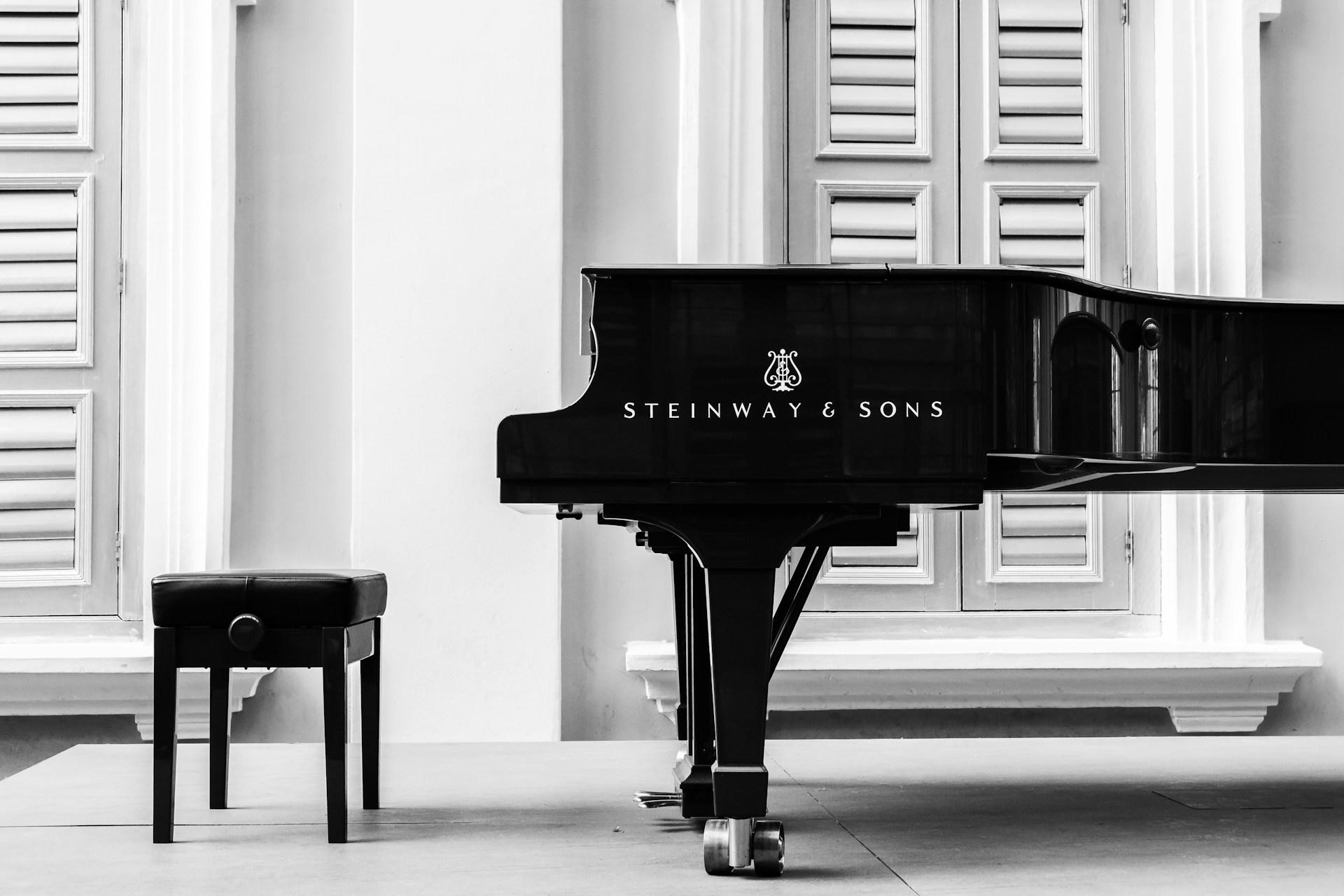There are few names as prestigious and revered in musical instruments as that of Steinway & Sons.
This German-American company (the founder was a German immigrant to the US) is synonymous with quality, innovation, and artistry. The combination of German and American craftsmanship allowed Steinway to combine old-world techniques with the innovative spirit of his new homeland.
For nearly 200 years, the Steinway & Sons company has built pianos and a legacy. Let's see how it all came to be and how Steinway & Sons went from a small loft to the best piano brand in the United States. If you're in the United States and want hands-on instruction, you can find piano lessons near me.

The Founding of Steinway & Sons
The story of Steinway & Sons begins in Manhattan, New York, in 1853. Heinrich Engelhard Steinweg, who anglicized his name to Henry E. Steinway, was a master piano builder and had constructed nearly 500 pianos already in his native Germany.
Like many immigrants at the time, Henry had to reestablish his reputation as a piano maker. The first American-made Steinway piano labeled No. 483 (it was his 483rd, of course), was sold for $500 and marks the beginning of the company's story.
Steinway's reputation for quality and innovation was established within the decade, and the company's factory expanded to larger premises on Park Avenue.
Steinway won awards at trade fairs, including a gold medal at the American Institute Fair in 1855. By the 1860s, the company was making nearly 2,000 pianos a year. Like Steinway himself, many of the company's employees were German immigrants.
The History of Steinway & Sons at a Glance
1853
Founding of Steinway & Sons
Heinrich Engelhard Steinweg (later Henry E. Steinway) establishes Steinway & Sons in Manhattan, New York, building their first piano in a small loft.
1855
First Major Recognition
Steinway wins a gold medal at the American Institute Fair in New York, solidifying their reputation for quality.
1866
Opening of Steinway Hall
The first Steinway Hall is inaugurated in New York City, becoming a cultural hub and home to the New York Philharmonic for 25 years.
1871
Introduction of Patents
Steinway begins its long tradition of innovation with the overstrung scale patent, enhancing resonance and tone, one of over 130 patents.
1880
Hamburg Factory Opens
A second Steinway factory is opened in Hamburg, Germany, catering to European markets and contributing to the brand's global expansion.
1903
The 100,000th Piano
Steinway produces its 100,000th piano, a gold-leaf grand gifted to the White House, marking its prestige in American culture.
1938
Victory Verticals During WWII
Steinway develops compact upright pianos for U.S. troops during World War II, boosting morale with music on the battlefield.
1953
100th Anniversary Celebration
Steinway celebrates a century of craftsmanship, with events and exhibitions recognizing its contributions to music.
2015
Launch of Spirio Player Piano
Steinway introduces the Spirio, a high-resolution player piano blending traditional craftsmanship with cutting-edge digital technology.
2024
600,000th Piano Produced
Steinway continues to dominate the industry, producing its 600,000th piano while maintaining its commitment to innovation and artistry.
Committing to Innovation
Steinway & Sons makes high-quality pianos and has been relentlessly innovating the piano industry.
different patents.
We won't go through all of the patents here, but some of the most important innovations include:
- Overstrung Scale (1859): This design allows the bass strings to overlap the treble strings, enhancing the piano's tonal richness and resonance.
- Duplex Scale (1872): This innovation allows segments of the strings beyond the main vibrating length to contribute to the sound, creating complex overtones.
- Diaphragmatic Soundboard (1936): The tapered design maximizes resonance and tonal quality.
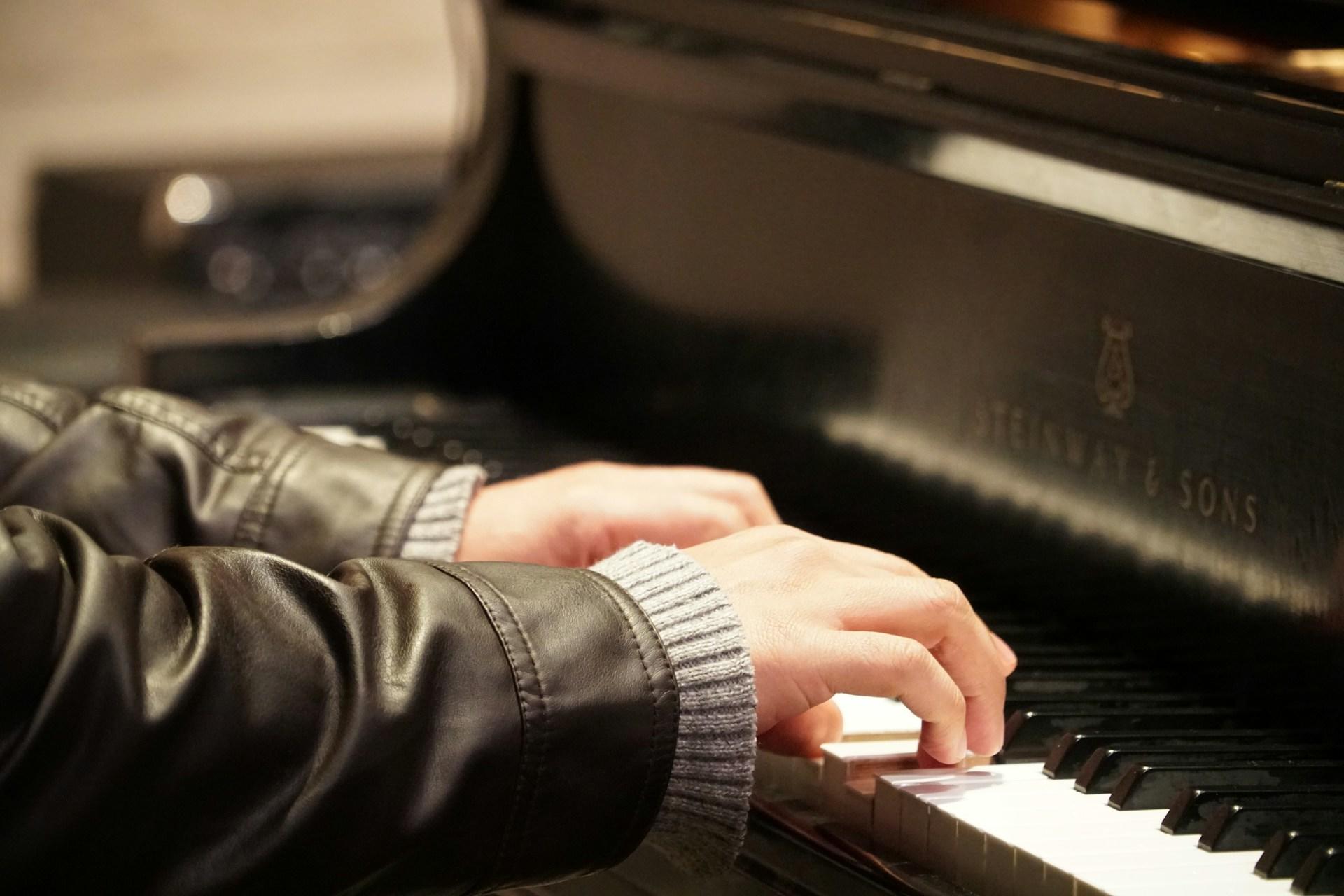
These and many of Steinway & Sons' other technical innovations give their pianos their distinct, unmatched sound, with patented features as standard. They led to Steinway and other piano manufacturers having to change how they made pianos.
Craftsmanship: The Art Behind Steinway's Sound
A Steinway is an intricate and beautiful instrument. It requires over 12,000 individual parts and a year of labor to make each piano.
Much like the boutique Mason & Hamlin pianos, every Steinway piano is handcrafted by artisans, combining traditional methods with cutting-edge technology and Steinway's patented processes.
Materials and Design
Steinway uses materials like Sitka spruce for soundboards and hard rock maple for rims. The manufacturing process starts by carefully selecting and aging lumber, which can take up to five years, ensuring the optimal quality of the materials.
Another of Steinway's patents, the rim-bending process, was developed in 1880 and is what gives Steinway pianos their structural integrity and tonal consistency.
Once a Steinway is built, it's rigorously tested and refined in accordance with the company's high standards. Expert technicians spend weeks calibrating every Steinway piano to ensure every note has the perfect timbre and dynamic response.
See what goes into each Steinway piano.
The Steinway Range
No two pianists are the same, so Steinway offers a range of piano models with different settings for different preferences.
From the compact Model S to the convert-level Model D, all offer rich tone and dynamic range. The Model B is often called the "perfect piano" and is popular with professionals and advanced pianists. After all, pianists need more compact models for their homes and larger models for concert performances.
The upright Model K piano offers the same craftmanship as the company's grand pianos, just in a more compact form. The Boston and Essex pianos are affordable options manufactured overseas.
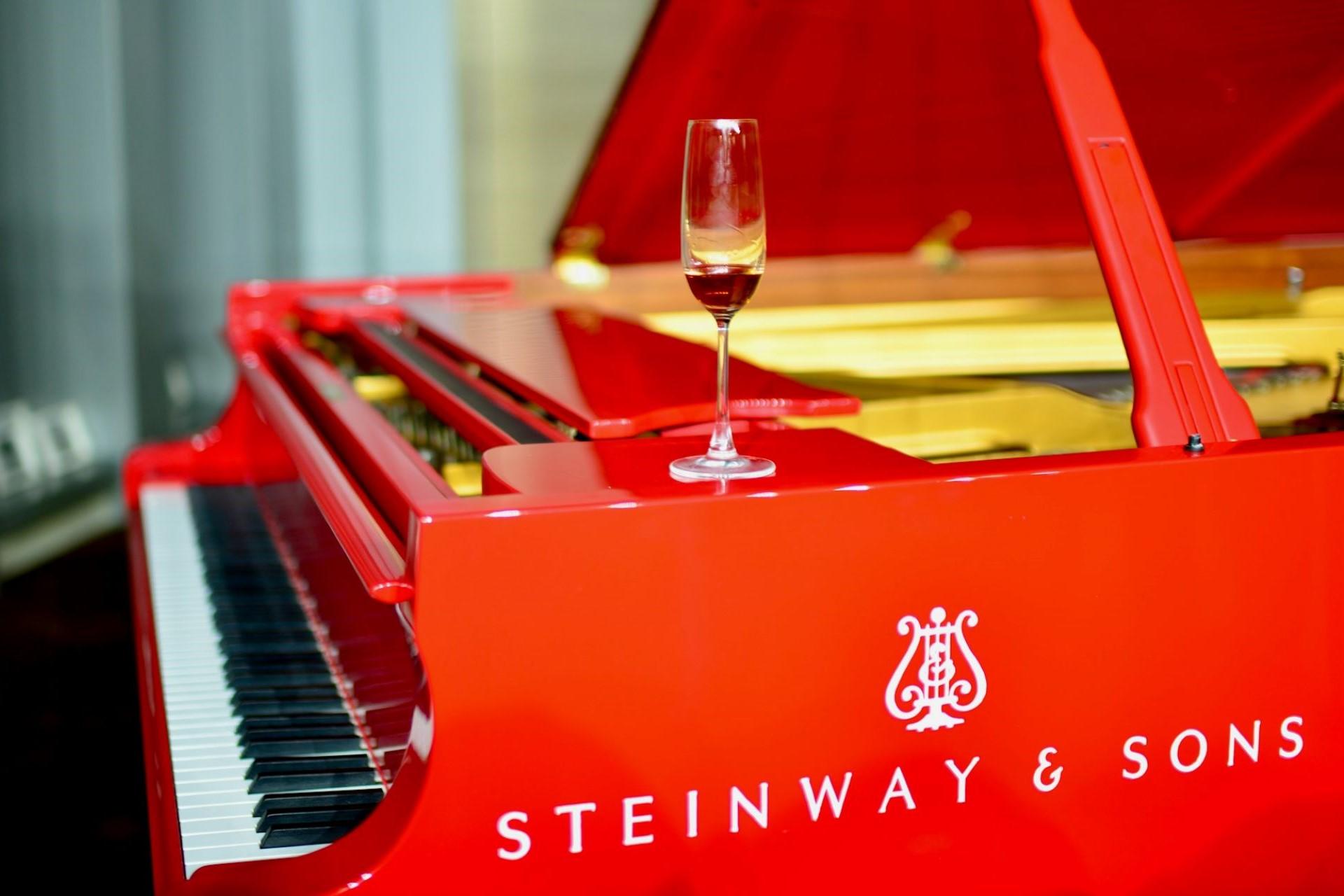
Steinway's piano ranges include grand and upright pianos as well as special collections. Here's a brief summary of each of the ranges.
Grand Pianos
Steinway's grand pianos are the epitome of acoustic excellence, delivering unparalleled sound and performance. Models like the Model D Concert Grand and Model B are known for their responsive action, weighted keys, and rich tonal quality.
These pianos are ideal for playing in professional and home settings, offering the best experience for serious musicians.
Upright Pianos
Steinway's upright pianos provide the same quality craftsmanship as their grand counterparts but are designed for smaller spaces. These pianos are perfect for those who need a compact acoustic instrument with a satisfying feel and dynamic sound.
A Steinway upright piano is an excellent choice for smaller venues.
Crown Jewel Collection
The Crown Jewel Collection features pianos crafted from rare and exotic woods like Macassar Ebony and East Indian Rosewood, combining stunning visual design with exceptional sound.
These limited-edition models appeal to collectors who want their piano to be both a functional instrument and a work of art, though piano aficionados would argue that every Steinway is a work of art.
Special Collection
The Special Collection allows owners to match their pianos to their interior design with custom finishes and materials.
Combining aesthetic appeal with Steinway's hallmark grand and upright designs, these pianos ensure an elegant harmony between playing experience and personal style.
Limited Edition Pianos
Steinway's Limited Edition pianos are collaborations with celebrated artists and designers. These pianos elevate traditional piano craftsmanship with unique, creative touches while maintaining the sound quality and action expected from Steinway. They are ideal for concert use or display in private collections.
Bespoke Pianos
For those seeking the ultimate in personalization, Steinway offers Bespoke Pianos. Clients can design their piano, selecting materials, finishes, and decorative features to create a unique instrument. This range allows pianists to own a custom grand or upright that reflects their playing style and aesthetic preferences.

The Cultural Impact of Steinway Hall
Beyond the pianos themselves, Steinway has had a lasting influence on American culture, too. In 1866, the company opened Steinway Hall in New York City.
This venue is a hub for musical performances and the home of the New York Philharmonic. This is a great venue to showcase Steinway pianos and ensures that the brand is associated with high culture and musical excellence.
Beyond Steinway Hall, Steinways have also been played in major concert halls worldwide, from Carnegie Hall to the Vienna Musikverein, and in venues like the White House. If you live in major music cities, you can look for piano lessons near me to continue your musical development.
The Steinway piano is a symbol of American craftsmanship and artistry.
Steinway Artists: A Legacy of Excellence
A cornerstone of the brand's prestige, the Steinway Artist program includes artists who exclusively play on Steinway pianos.
These aren't paid endorsements for Steinway. Artists like Sergei Rachmaninoff, Arthur Rubinstein, and Billy Joel chose to play only Steinways because of their incredible quality and sound.
The program itself is a mark of prestige and a testament to the popularity of Steinway pianos among professional musicians.
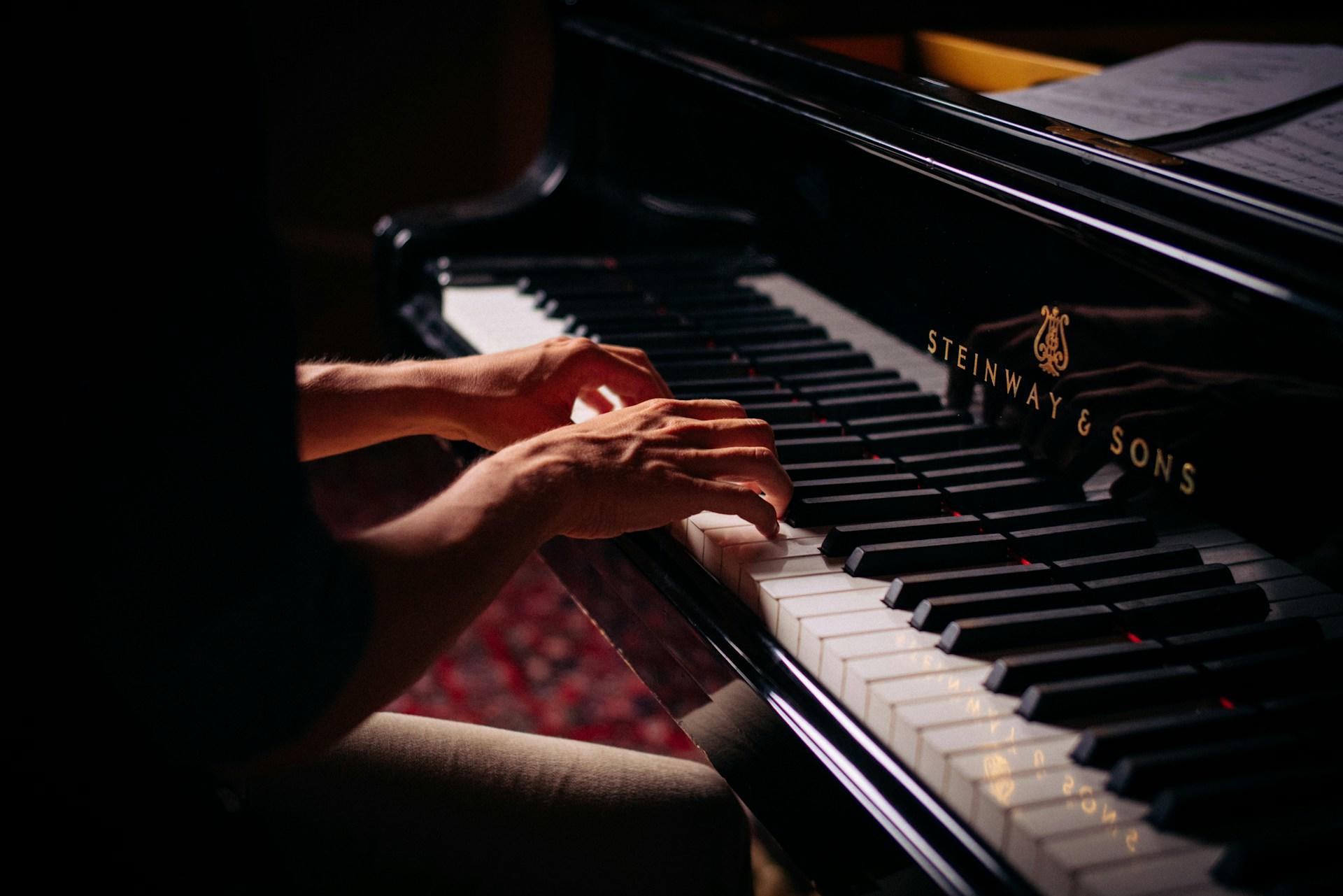
Modern Innovations: Spirio and Spirio | r
While the Steinway brand is built on its legacy of decades of building incredible pianos, innovation has always been at the heart of the company's manufacturing process.
In the digital age, Steinway has continued to innovate with the Spirio and Spirio | r. These high-resolution player pianos blend traditional craftsmanship with cutting-edge technology.
Features include:
- Recording and Playback: With the Spiro | r, players can record and playback performances with unparalleled accuracy, capturing all the nuance of their playing.
- Extensive Music Library: You can access a library of recordings by Steinway Artists.
- Spiriocast Technology: This feature allows live performance streaming, a new way for musicians and audiences to connect.
Steinway Manufacturing
Steinway & Sons has two factories, one in Queens, New York, and the other in Hamburg, Germany.
Generally, the New York factory caters to markets in the Americas, while the Hamburg factory supplies Steinways to the rest of the world so you won't need to worry about this when choosing your piano.
The two factories differ slightly, but they both naturally produce pianos that meet Steinways' high standards for quality and manufacturing, which is why musicians worldwide swear by Steinways.
The two factories maintain close communication, exchanging techniques and materials to ensure that American-built and German-built Steinways are as close to one another as possible.
The Steinway Secondary Market
Buying a Steinway, like any other quality musical instrument, is an investment. While a Steinway piano may not be as affordable as a Baldwin piano, for example, its enduring value and high quality make it a wise investment that retains its value extremely well.
Steinway pianos are an investment due to their high quality and resale value.
The company has a certified pre-owned program that offers restored instruments that meet Stweinway's original specifications.
The resale market means that Steinways often retain or even increase their value. Buying a Steinway is neither a waste of time nor money. The 1887 Alma-Tadema Steinway set a record when it sold for $1.2 million at auction in 1997.
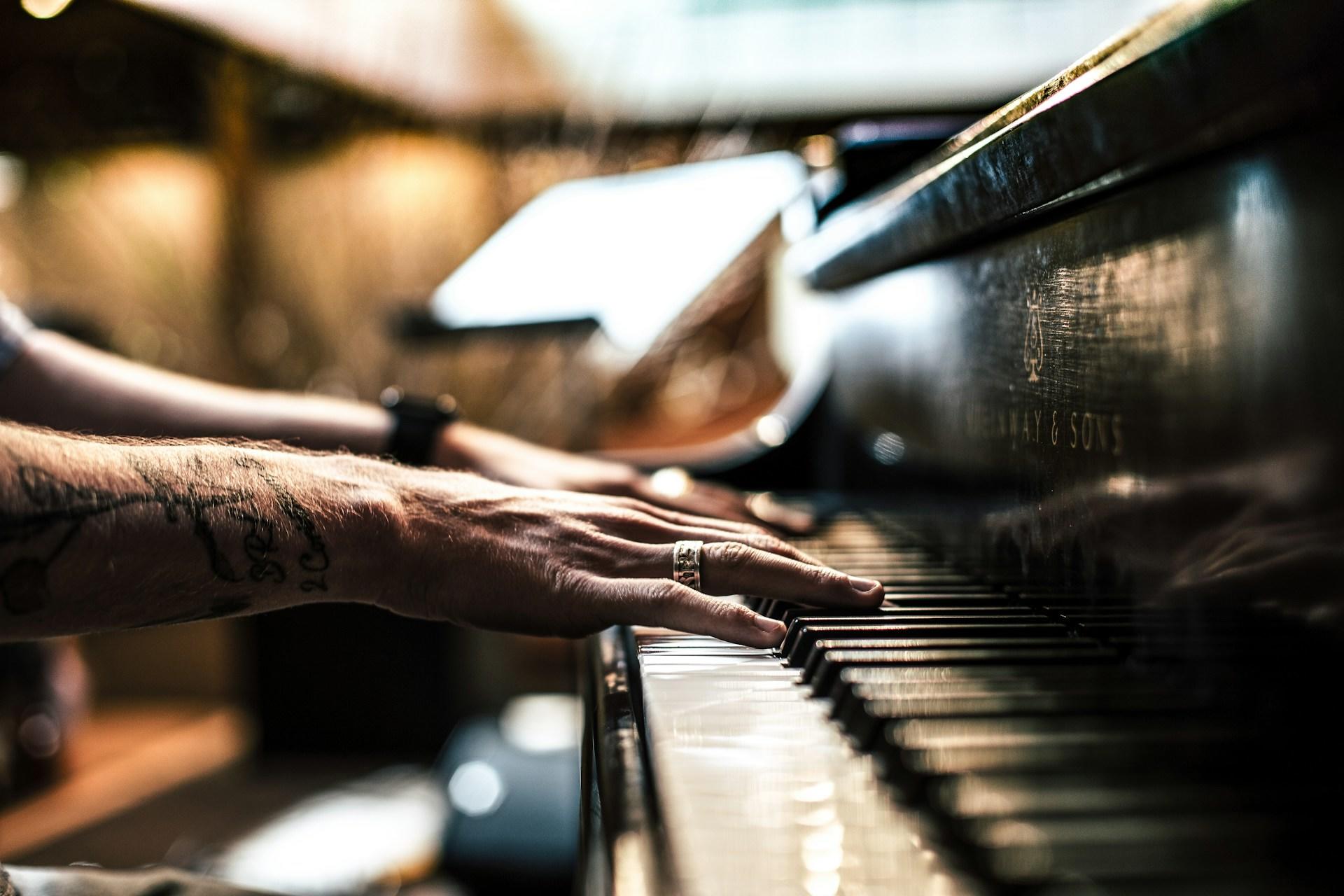
The Future of Steinway
Steinway is one of many manufacturers of high-quality pianos. Brands like Yamaha, Kawai, and Bösendorfer all compete with Steinway, but Steinway's emphasis on sustainability, global expansion, and projects like the Spirio range ensure that the future looks bright for the US' best piano manufacturer.
Steinway has explored new technologies and sourcing sustainable materials to reduce the environmental impact of piano manufacturing.
Steinway & Sons isn't just a piano manufacturer. It represents artistry, innovation, and a cultural legacy in music and piano manufacturing.
From a Manhattan loft to the preferred pianos of the world's greatest musicians, the brand is so much more than the musical instruments it makes.
Steinway has a rich history, unparalleled craftsmanship, and a dedication to innovating how pianos are made.
When it comes to American-made pianos, Steinway & Sons is the gold standard.
Learn More About the Piano with a Private Tutor
Whether you want to learn more about pianos in general or ensure that your playing is worthy of a Steinway, there are plenty of excellent private piano tutors on the Superprof website. Easily find piano lessons near me with Superprof!
No matter what kind of music you play, there's a talented and experienced tutor. Just search for what you want to learn.
Face-to-face tutoring is usually best for hands-on skills and subjects, but you'd be surprised at just how effective online tutoring can be nowadays.
With many offering the first session for free, you can always try potential tutors before choosing the right one for you and your goals.
Rather than arranging lots of free sessions with every tutor in your local area and online, it's much better to think carefully about what you're looking for in a tutor.
Make a list of requirements and contact only the tutors who meet your requirements. If you prefer local options, try searching for piano lessons near me. Don't waste your time (and a tutor's time) by contacting tutors you know won't be suitable or are out of your budget!
Summarize with AI:

